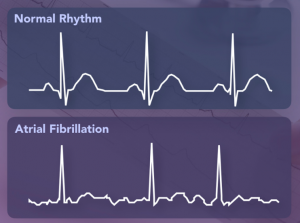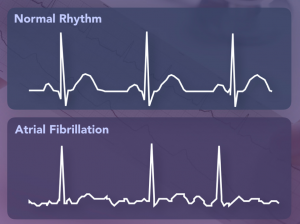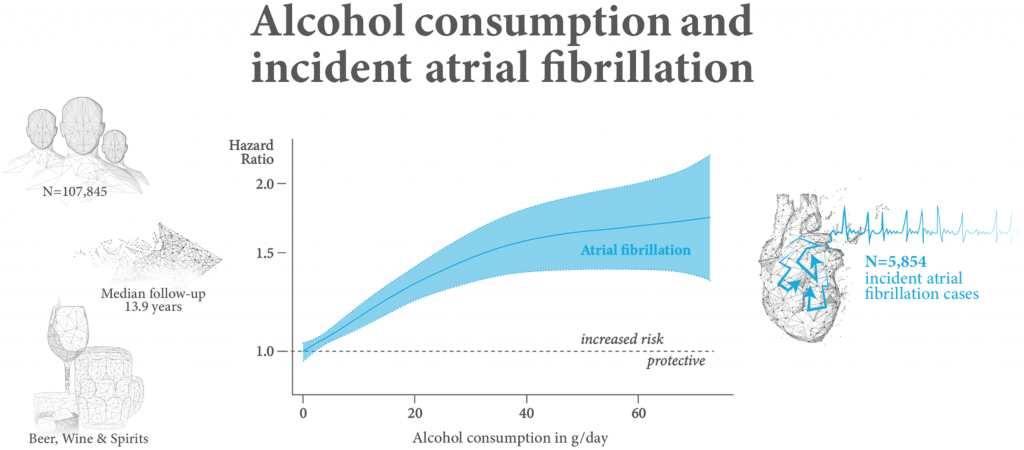This happens quite often: people come home after a long, tiring day and look forward to cracking open a beer, making a cocktail or pouring themselves a glass of wine. Sure, this may be an evening ritual for many, but at what cost? A recent study led by consultant cardiologist, Professor Renate Schnabel, at the University Heart and Vascular Center determined that people who regularly enjoy small amounts of alcohol develop an increased risk of atrial fibrillation (AF).
What is atrial fibrillation?
Atrial fibrillation is when a person has an abnormal heartbeat rhythm. The two upper chambers, the atria of the heart, beat out of sync from the two lower chambers, the ventricles. Since the upper and lower chambers of the heart are not working together, the lower chambers may not be able to pump enough blood to our lungs and throughout our body. Due to this, people with AF may feel tired, dizzy or suffer from chest pains. The irregular heart rhythm may also cause blood to pool in the heart which can cause clot formation and thus lead to strokes or heart failure.

Atrial Fibrillation vs. Normal Sinus Rhythm on Electrocardiogram. Source: Clearvue Health
Ingesting large amounts of alcohol, binge drinking for example, has been one of the leading risk factors that may result in AF. Until now, however, there has not been enough proof linking the effect of drinking small amounts of alcohol to AF. This is why the current study led by Professor Renate Schnabel has been an important step in AF research.
The video below called “What is Atrial Fibrillation”, created by the Youtube channel known as British Heart Foundation, gives an overview on what AF is:
Linking atrial fibrillation to alcohol consumption
Past research, such as the study conducted by Andriy V. Samokhvalov and his colleagues, found a link between alcohol consumption and the development of AF. However, a limitation from this study was that it did not clearly prove the association between light drinking causing AF.
In the study conducted by Professor Renate Schnabel, participants were given medical examinations and were asked to share how often they consumed alcohol as well as their drinking pattern. During the follow-up with the study participants, which occurred after approximately 14 years, they were analyzed for any link between their alcohol consumption and AF. Researchers discovered such a link even for individuals consuming low amounts of alcohol. In fact, 5854 people ended up developing atrial fibrillation after 14 years.
What this means for alcohol drinkers
Even low amounts of alcohol consumption can lead to AF which is a stepping stone for other problems such as heart failure and strokes. This is why it is important to get checked for AF even if symptoms are minor (ie. heart palpitations, dizziness, chest pains, etc.). Also, proper management of drinking habits may lower the risk of developing AF. After all, protecting your heart will only benefit you in the long run.
– Ramdeep Dosanjh


